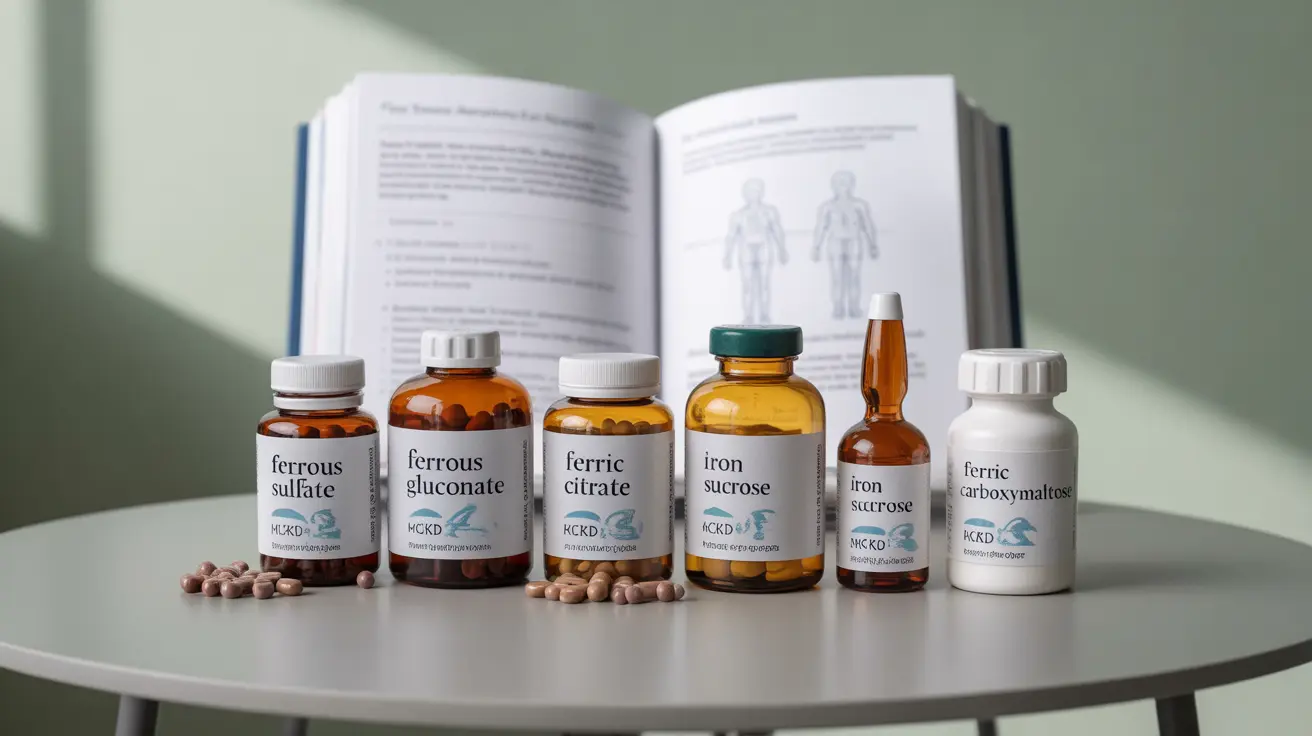Living with chronic kidney disease (CKD) often means managing various health challenges, including iron deficiency anemia. Understanding the best iron supplement options is crucial for maintaining optimal health and quality of life. This comprehensive guide explores the various iron supplementation methods available for kidney disease patients and helps you understand which options might be most effective for your situation.
Iron deficiency is particularly common in CKD patients due to reduced iron absorption, increased iron losses, and decreased production of erythropoietin, a hormone that stimulates red blood cell production. Let's examine the different types of iron supplements and their effectiveness in managing anemia in kidney disease.
Types of Iron Supplementation for Kidney Disease
Oral Iron Supplements
Oral iron supplements come in several forms, including:
- Ferrous sulfate
- Ferrous gluconate
- Ferric citrate
- Ferrous fumarate
These supplements are typically the first-line treatment for iron deficiency in CKD patients who aren't on dialysis. They're convenient, cost-effective, and can be taken at home. However, absorption may be limited in CKD patients, and some people experience gastrointestinal side effects.
Intravenous Iron Preparations
Intravenous (IV) iron preparations offer several advantages for CKD patients, particularly those on dialysis or with severe iron deficiency. Common IV iron formulations include:
- Iron sucrose
- Ferric carboxymaltose
- Iron dextran
- Ferumoxytol
These preparations bypass the digestive system, ensuring better iron absorption and potentially fewer gastrointestinal side effects.
Choosing the Right Iron Supplement
The choice between oral and IV iron supplementation depends on several factors:
- Severity of iron deficiency
- Stage of kidney disease
- Dialysis status
- Individual tolerance to different preparations
- Cost and convenience considerations
- Overall health status
Managing Side Effects and Monitoring Treatment
Regular monitoring is essential when taking iron supplements. Healthcare providers typically track:
- Hemoglobin levels
- Ferritin levels
- Transferrin saturation
- Kidney function markers
- Potential side effects
This monitoring helps ensure the effectiveness of treatment and allows for adjustments as needed.
Frequently Asked Questions
What is the best iron supplement for managing anemia in people with chronic kidney disease?
The best iron supplement varies by individual case. For early-stage CKD patients, oral iron supplements like ferrous sulfate or ferric citrate may be sufficient. However, IV iron preparations are often more effective for patients on dialysis or those who can't tolerate oral supplements. The choice should be made in consultation with a healthcare provider based on individual needs and circumstances.
How effective is intravenous iron compared to oral iron for treating iron deficiency in CKD patients?
Intravenous iron is generally more effective than oral iron in CKD patients, particularly those on dialysis. IV iron provides better absorption, faster improvement in iron levels, and typically results in higher hemoglobin levels. Studies show that IV iron can achieve target iron levels more quickly and reliably compared to oral supplements.
What are the common side effects of oral and intravenous iron supplements in kidney disease?
Oral iron supplements commonly cause gastrointestinal issues like constipation, nausea, and abdominal pain. IV iron may cause reactions like headaches, joint pain, or rarely, allergic reactions. Both forms require careful monitoring, but side effects are generally manageable with proper medical supervision.
When should intravenous iron be preferred over oral iron for anemia in chronic kidney disease?
IV iron is typically preferred for patients who are on hemodialysis, have severe iron deficiency, show poor response to oral supplements, experience significant gastrointestinal side effects from oral iron, or have poor absorption of oral supplements. It's also recommended for patients who need rapid iron repletion.
Can oral ferric citrate help with iron deficiency and phosphate control in non-dialysis CKD patients?
Yes, ferric citrate serves a dual purpose in non-dialysis CKD patients. It not only helps treat iron deficiency but also acts as a phosphate binder, helping to control phosphate levels. This makes it a particularly valuable option for patients who need both iron supplementation and phosphate management.




